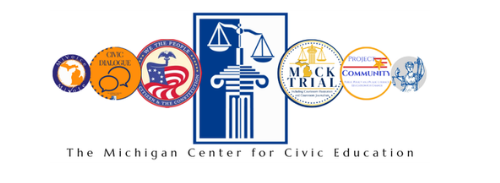Students take a look at two political thinkers who spent a lot of time trying to answer the question, “Why Government?” – Thomas Hobbes and John Locke. The lesson asks students to compare and contrast Hobbes and Locke and to think about how these philosophers influenced those that followed in their footsteps.
Civics Lessons
Why Government?
A Kid’s Guide to Running for President
Students will read about the election process and correctly put the steps in proper sequence. Students will participate in a debate on an issue that relates to their day-to-day school experience.
Citizen Me
Students learn that they are citizens at many levels of society: home, school, city, state, and nation! Students create a graphic organizer that diagrams rights and responsibilities at these different levels of citizenship. They also learn the sources of their rights and responsibilities at each level.
Becoming a Voter
In this lesson, students apply what they learn about their state’s requirements for registering to vote. Students learn when and how to register, how to complete a voter registration form, and when and how to re-register.
Participating in the Jury System
Students participate in activities and discussions about the relationship of a democratic society to its legal institutions, and the issues of fairness and equality under the law and legal system. They learn how constitutional amendments such as the Fourteenth Amendment influence lawsuits, and they will apply concepts within the Bill of Rights to jury trials. Students conduct research to compare the U.S. jury trial system to trial systems in other countries.
Interpreting the Law
Students learn why laws need to be interpreted by discussing laws/constitutional provisions. They present their findings to the class.
How Should We Choose People for Positions of Authority?
This lesson helps students to identify the requirements of a position of authority and the qualifications a person should possess to fill that position. Students learn a set of intellectual tools designed to help them both analyze the duties of the position and to decide if an individual is qualified to serve in that particular position. During the lesson students practice using the intellectual tools.
The Exchange: Should the United States Reduce Immigration?
Through research and deliberation, students are encouraged to look at the issue of immigration reform from different points of view.
The Jury System
In this lesson, students identify pros and cons of jury trials and judge-only trials, plus develop and respond to questions that might help to ensure the selection of a fair and unbiased jury.
The Need for Laws: Planet Lawless
This activity will help students understand the need for rules, the rulemaking process, and the role of the student / citizen. Students will be introduced to the relationship between rules and laws and how citizens can establish laws in their communities, much like rules in the classroom, to help them live together.

